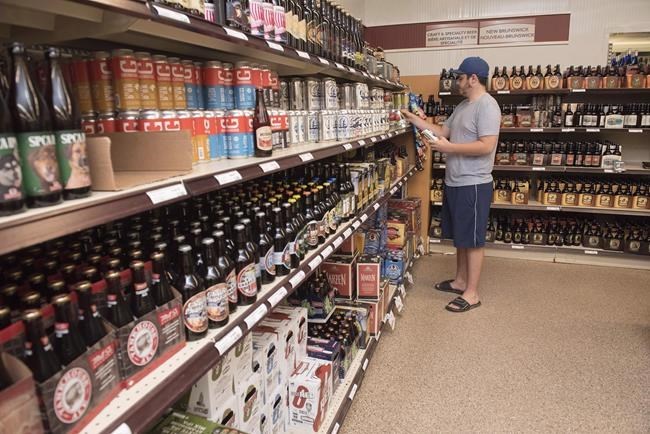Last week, the Supreme Court of Canada released one of the more mischievous rulings in its checkered history. The issue has to do with inter-provincial trade.
A New Brunswick man brought a truckload of beer and spirits back from Quebec, where prices are cheaper. He was fined $240 plus fees.
After a lower court dismissed the charges against him, and the New Brunswick Court of Appeal upheld that ruling, the case was brought before the Supreme Court. All nine justices reversed the lower courts.
The larger issue here has nothing to do with a truckload of booze. It has to do with the court’s rationale.
First, for old times’ sake, let’s look at what the law in question says. Section 121 of the Constitution Act reads as follows: “All articles of the growth, produce or manufacture of any one of the provinces shall, from and after the union, be admitted free into each of the other provinces.” That’s about as unequivocal as it gets.
But here is the court’s interpretation: “Section 121 prohibits laws restricting inter-provincial trade, but only where restricting trade is the law’s main purpose.”
The Constitution Act says no such thing. This is outright persiflage. But it is persiflage with a purpose.
The court’s concern was that if the law were applied as it stands, “it would have far-reaching effects on agricultural supply management, public-health prohibitions, environmental controls and similar schemes.”
Well, so what? Lots of laws have undesirable side-effects.
For instance, unlike the U.S., Canada forbids paying surrogate mothers who bear a child for an infertile woman. Not surprisingly, that makes it difficult, and sometimes impossible, to find a surrogate.
There are arguments on both sides of the issue, but this is something Parliament should deal with, not a crusading judge.
However, here is where the real mischief begins. The court not only said that laws restricting trade are constitutional so long as this is not their “main purpose.”
It also embraced a huge range of acceptable purposes — environmental controls, public-health prohibitions, “similar schemes” (whatever that means) and so on. In effect, just about anything goes.
So can B.C. now shut down Alberta’s oil exports on environmental grounds? Can Alberta use price constraints to limit the import of B.C. wine, as New Brunswick did with Quebec beer?
If the English language has any meaning, the answer would have to be yes. But that is not how things work in legal circles.
Some lines from Alice in Wonderland come to mind: “When I use a word,” Humpty Dumpty said, in rather a scornful tone, “it means just what I choose it to mean — neither more nor less.”
My guess is the court would not permit B.C. to block Alberta’s oil, its own capacious ruling notwithstanding. And the reason is that such a ban would be ruinous to Alberta’s economy and an invitation to unbridled provincial tribalism.
Never mind that the court has just issued such an invitation. When its own words come back to bite it, I suspect we’ll see an artfully manufactured retreat to something more consonant with our country’s founding documents.
But a constitution subject to such elastic reinterpretation is worse than useless. It is merely a vehicle for legislating from the bench.
I’m all in favour of legislation. But I would like it to be enacted by Parliament, not the courts.
Heaven knows, the House of Commons has its problems, but it is the people’s chamber. If the fundamental affairs of our state need rearranging, this is where it should be done.
Our courts would do well to exercise more restraint. The Pandora’s box opened by this latest ruling will sow dissent and confusion for years to come. That is a discouraging prospect.



